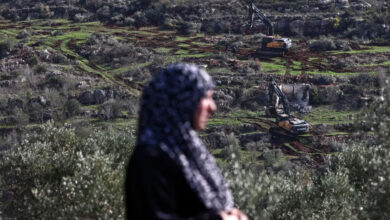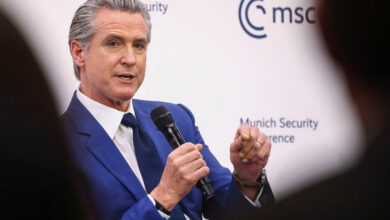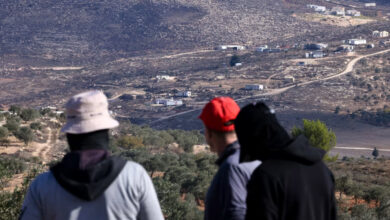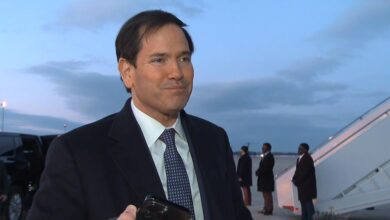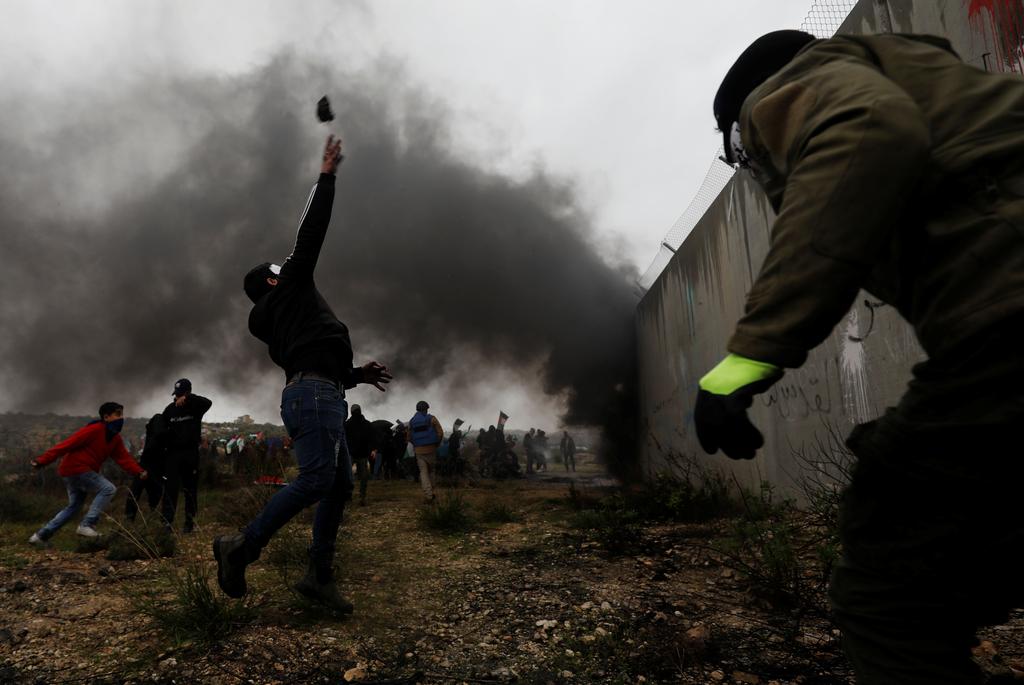
JERUSALEM (Reuters) – A Palestinian protester was shot dead in the West Bank on Friday as Palestinian and US leaders blamed each other for violence that erupted after President Donald Trump unveiled a Middle East Peace plan that Palestinians rejected as one sided.
Palestinian protesters and Israeli security forces have repeatedly clashed since the peace proposals were unveiled by Trump, with Israel’s prime minister at his side.
Friday’s killing raised the Palestinian death toll to four. More than a dozen Israelis have been wounded in car-ramming and shooting attacks since the Trump proposal.
On Friday, mourners had gathered in the occupied West Bank for the funeral of a Palestinian police officer who was shot dead in the unrest a day earlier. Palestinian authorities said he was killed by Israeli gunfire. Israel has not commented.
There were sporadic clashes between protesters and Israeli security forces near Azzun, where the funeral was held.
Palestinians also clashed with Israeli troops in Jericho and burned tires in the West Bank village of Bil’in.
Palestinian medics said one protester had been shot and killed near Tulkarm on Friday.
The Israeli army said dozens of Palestinian rioters had hurled rocks and fire bombs at troops, and soldiers had identified a Palestinian who threw a firebomb and “responded with fire in order to remove the threat.”
“The Palestinian people will not allow the ‘Deal of the Century’ to pass,” said Mohammed Barakeh, waving a Palestinian flag in Bil’in, referring to the US peace deal.
“They are fighting for their national character and the independence of their country,” said Barakeh, a former Israeli lawmaker and member of Israel’s 21 percent Arab minority, many of whom identify with Palestinian brethren in the West Bank and Gaza.
President Mahmoud Abbas’s Palestinian Authority has rejected Trump’s peace plan, which would give Israel most of what it has sought during decades of conflict, including the disputed holy city of Jerusalem and nearly all the occupied land on which it has built settlements.
Palestinian negotiator Saeb Erekat said Washington was to blame for the unrest since the plan was unveiled.
“Those who introduce plans for annexation and the legalizing of occupation and settlements are really responsible for deepening violence and counter-violence,” he said.
He said Abbas would go to the U.N. Security Council with “a genuine peace plan”.
Trump’s senior adviser Jared Kushner, the main architect of the US plan, has denounced the Palestinian leadership, breaking from decades of diplomacy when Washington sought to appear neutral. On Thursday, he blamed Abbas for the violence.
“I think he does have responsibility,” Kushner said after briefing UN Security Council ambassadors. “He calls for days of rage in response, and he said that before he even saw the plan.”
Israeli police said security chiefs had met on Thursday and would increase security “across the country, with emphasis on Jerusalem”.
Palestinians have long boycotted relations with the Trump administration, which they view as biased. Washington says its plan offers a path toward a Palestinian state, and blames the Palestinian leadership for chasing unrealistic goals.
Reporting by
Additional reporting by Ali Sawafta in Ramallah and Ari Rabinovitch in Jerus
Image: A Palestinian demonstrator hurls stones at Israeli forces as he stands next to the Israeli barrier during a protest against the US President Donald Trump’s Middle East peace plan, in the village of Bilin in the Israeli-occupied West Bank February 7, 2020. REUTERS/Mohamad Torokman

